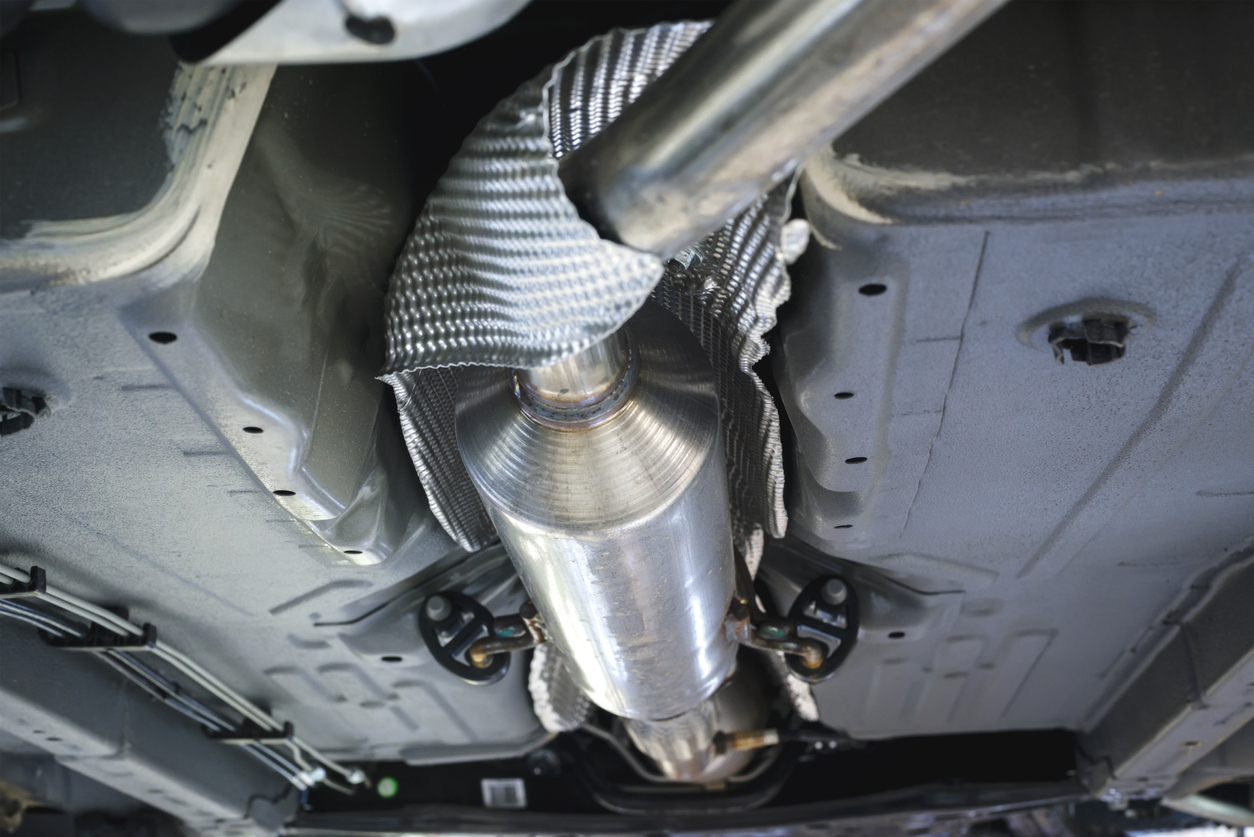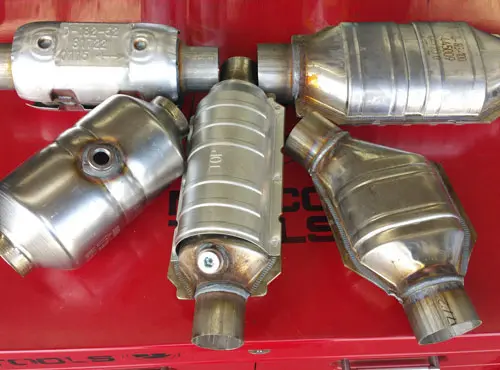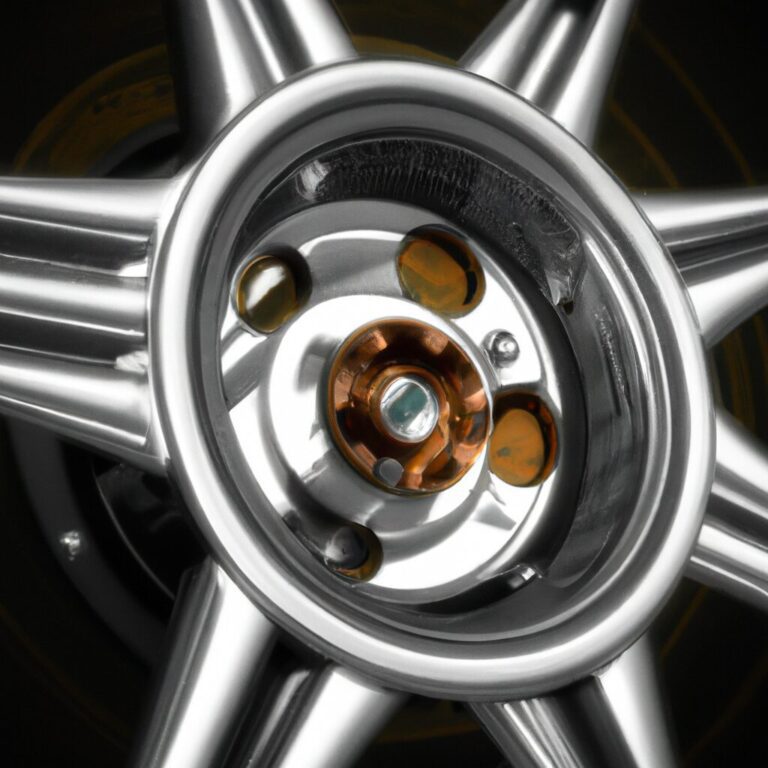Catalytic Converter: Repair Or Replace? The Best Solution
If your catalytic converter is malfunctioning, it’s crucial to weigh the costs and benefits of repairing or replacing it. An accurate assessment of the problem and an estimation of the overall condition of your vehicle will help determine the best solution.
Repairs might be suitable for minor issues, but if the converter is severely damaged, replacement would be the more cost-effective and long-term solution. When considering the repair or replacement of a catalytic converter, several factors need to be taken into account.
These include the extent of the damage, the age and overall condition of the vehicle, and the cost-effectiveness of either option. Understanding these factors will enable you to make an informed decision that ensures the optimal functioning of your vehicle and complies with environmental regulations. Ultimately, the choice between repair and replacement will depend on the specific circumstances surrounding your vehicle’s catalytic converter issue.

Credit: shop.advanceautoparts.com
The Role Of A Catalytic Converter
A catalytic converter is an essential component of a vehicle’s exhaust system. It plays a crucial role in reducing harmful emissions and converting them into less harmful substances before releasing them into the atmosphere. This device is designed to facilitate the oxidation of harmful gases such as carbon monoxide and nitrogen oxide, as well as the reduction of nitrogen oxides into nitrogen and oxygen. As a result, the catalytic converter helps in minimizing air pollution and ensuring a cleaner environment.
Function Of A Catalytic Converter
A catalytic converter functions by utilizing a catalyst – typically composed of platinum, palladium, and rhodium – to initiate various chemical reactions. These reactions occur within the converter as the exhaust gases pass through it. The primary functions of a catalytic converter can be summarized as follows:
- Conversion of carbon monoxide (CO) into carbon dioxide (CO2)
- Conversion of nitrogen oxides (NOx) into nitrogen (N2) and oxygen (O2)
- Conversion of unburned hydrocarbons (HC) into carbon dioxide (CO2) and water (H2O)
The catalytic converter acts as a catalyst, accelerating these chemical reactions and promoting the conversion of harmful gases into less harmful substances. By doing so, it helps a vehicle meet the stringent emission standards set by regulatory authorities.
Signs Of A Failing Catalytic Converter
Over time, a catalytic converter can become less effective or even fail completely. Recognizing the signs of a failing catalytic converter is crucial for determining whether it requires repair or replacement. Some common indicators of a failing catalytic converter include:
- Reduced engine performance and power
- Increase in fuel consumption
- Unusual odor coming from the exhaust
- Excessive smoke or visible emissions from the exhaust
- Rattling noise from the catalytic converter
- Illuminated “Check Engine” light on the vehicle’s dashboard
If you notice any of these signs, it is important to have your catalytic converter inspected and evaluated by a professional. They will be able to determine whether it can be repaired or if replacement is necessary to ensure optimal vehicle performance and compliance with emission regulations.

Credit: www.autozone.com
Repairing A Catalytic Converter
When it comes to a malfunctioning catalytic converter, one of the key considerations is whether to repair or replace it. Today, we’ll delve into the intricacies of repairing a catalytic converter and explore the potential repair techniques as well as the cost associated with this course of action.
Potential Repair Techniques
If you’re contemplating the repair of a catalytic converter, it’s crucial to be aware of the potential techniques that could be employed. In some cases, minor issues such as clogging or damage to the catalyst substrate can be addressed through cleaning and de-clogging services. Additionally, welding might be feasible for patching up small perforations or cracks in the outer shell of the converter.
Cost Of Repairing A Catalytic Converter
The cost of repairing a catalytic converter can vary significantly based on the extent of the damage and the specific repair techniques employed. As a general guideline, simple cleaning and de-clogging services may cost around $100 to $200, while more extensive repairs such as welding could range from $200 to $600.
Replacing A Catalytic Converter
Replacing a catalytic converter is sometimes necessary when it becomes damaged or fails to function effectively. There are various signs that indicate a need for replacement, and knowing the available options can help you make an informed decision.
When To Replace A Catalytic Converter
A catalytic converter should be replaced if it is damaged, clogged, or causing decreased engine performance. Signs of a failing catalytic converter include a decrease in fuel efficiency, a rotten egg smell from the exhaust, or a noticeable drop in engine power.
Ignoring these indications can lead to more severe issues and may cause the vehicle to fail emission tests. Therefore, it’s crucial to address any catalytic converter problems promptly.
Types Of Catalytic Converter Replacement Options
When it comes to replacing a catalytic converter, there are several options to consider, ranging from OEM (original equipment manufacturer) replacement parts to aftermarket converters. The three primary replacement options are:
- Direct Fit Catalytic Converters
- Universal Fit Converters
- Weld-in Converters
Direct fit catalytic converters are designed to match the specifications of the original converter, ensuring a precise fit and optimal performance. In contrast, universal fit converters are more versatile and can be adapted to a wide range of vehicles. Weld-in converters are a cost-effective option but may require professional installation.

Credit: www.budgetmufflerbrake.com
Factors Influencing The Decision
Factors influencing the decision to repair or replace a catalytic converter include the extent of damage, cost effectiveness, and overall performance impact. Consulting with a qualified mechanic for a thorough evaluation can determine the best solution for optimal efficiency and compliance with emissions regulations.
Factors Influencing the Decision When it comes to catalytic converter issues, the decision of whether to repair or replace the unit depends on various factors. Making the right choice is crucial not only for your vehicle’s performance but also for cost considerations and environmental impact. In this section, we will explore the key factors that influence the decision, including cost considerations and environmental impact and regulations. Cost Considerations One of the primary factors to consider when deciding whether to repair or replace your catalytic converter is the cost. Typically, repairing a catalytic converter involves fixing specific components or issues, such as a damaged substrate or a malfunctioning oxygen sensor. On the other hand, replacing the unit involves purchasing a brand-new converter. The overall cost of repairing versus replacing depends on the extent of the damage, availability of replacement parts, and labor costs. In some cases, repairing may be a more cost-effective solution, especially if the damage is minimal. However, if the damage is extensive or if replacement parts are not readily available, opting for a replacement may be a more practical choice. Environmental Impact and Regulations Another crucial factor to consider is the environmental impact and local regulations governing catalytic converters. These devices play a vital role in reducing harmful emissions from your vehicle, helping to protect the environment and prevent air pollution. However, over time, catalytic converters can deteriorate and become less effective, leading to increased emissions. If your catalytic converter is older and no longer operating efficiently, repairing it may offer only a temporary solution. In such cases, replacing the catalytic converter becomes necessary to ensure compliance with environmental regulations and minimize your vehicle’s impact on air quality. Furthermore, it is essential to be aware of any specific regulations that govern catalytic converter replacements in your region. Some areas have strict emission standards and require specific types of catalytic converters. Therefore, it is important to check local regulations and ensure that the replacement catalytic converter you choose meets the necessary requirements. In addition to cost considerations and environmental impact, there are other factors that may influence your decision. These include the age and overall condition of your vehicle, the reliability and reputation of the repair or replacement options available, and the advice of a trusted automotive professional. Making the right choice between repairing or replacing your catalytic converter can help optimize your vehicle’s performance while minimizing costs and environmental impact. By considering the cost considerations and understanding the environmental impact and regulations, you can make an informed decision that benefits both your vehicle and the environment.Conclusion: Making The Right Choice
Choosing between repairing or replacing a catalytic converter can be a daunting decision. Finding the best solution depends on factors such as the severity of damage and the cost-effectiveness of repair options. Ultimately, making an informed choice is crucial for optimal performance and emission control.
Evaluating The Best Solution
When deciding between repairing or replacing your catalytic converter, evaluate the best solution based on factors like the extent of damage and cost-effectiveness.
Ensuring Long-term Vehicle Performance
To ensure long-term vehicle performance, opt for a replacement if the converter is severely damaged or old, to prevent further issues down the road.
Frequently Asked Questions For Catalytic Converter: Repair Or Replace? The Best Solution
Can You Save A Catalytic Converter Instead Of Replacing?
Yes, it is possible to save a catalytic converter instead of replacing it but it depends on the extent of the damage. Regular maintenance and prompt repairs help in prolonging the life of the converter. Consulting a professional can help to assess the viability of saving it.
Is It Worth It To Fix A Catalytic Converter?
Yes, fixing a catalytic converter is worth it as it helps reduce harmful emissions and improves vehicle performance.
Is It Better To Clean Or Replace A Catalytic Converter?
Cleaning is often a temporary solution, but replacing the catalytic converter is a better long-term option. Cleaning may temporarily restore functionality, but not for long. Replacing the converter ensures optimal performance and reduces emissions.
Can Catalytic Converter Be Repaired Without Replacing It?
Yes, catalytic converters can be repaired without replacement by fixing specific issues like clogs or damage.
Conclusion
Ultimately, deciding whether to repair or replace your catalytic converter depends on various factors. It is important to consider the extent of the damage, the age and condition of the converter, and the cost-effectiveness of each option. Consulting with a professional mechanic is advised to ensure the best solution for your specific situation.
Remember, proper maintenance and addressing any issues promptly can help prolong the life of your catalytic converter and optimize the performance of your vehicle.


